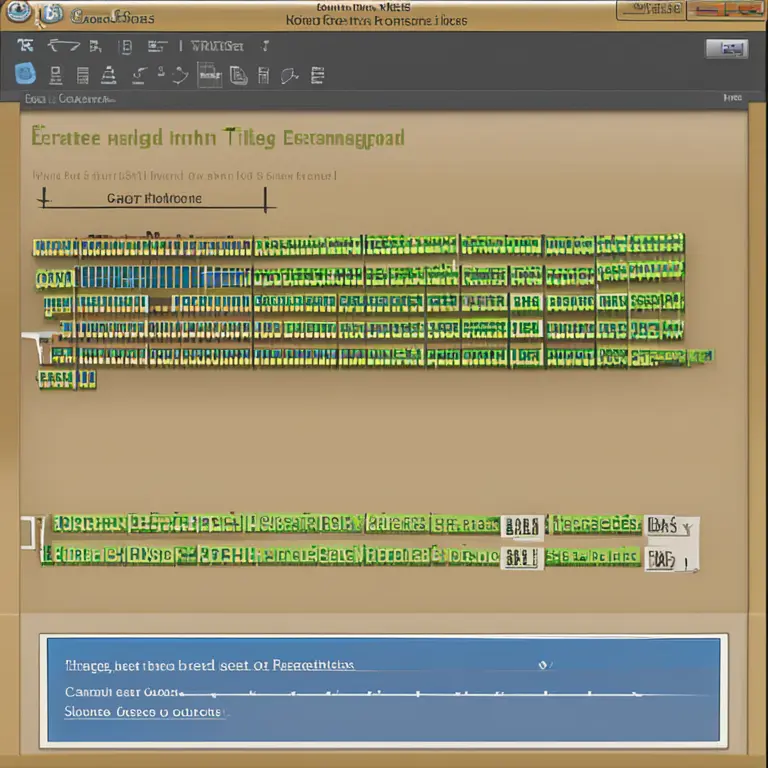
Mindful Balance: Meditation for Bipolar Wellness
Explore meditation techniques designed to foster stability and tranquility in individuals with bipolar disorder, promoting mental well-being and balance.
article by Hina Kurosawa
Introduction to Meditation and Bipolar Disorder
Meditation has surfaced as a complementary treatment for various mental health conditions, including bipolar disorder. Recognized for its potential to instill calmness and enhance self-awareness, certain meditation practices may offer benefits to those managing the cyclical highs and lows typical of bipolar disorder. It is crucial, however, for individuals to consult with their healthcare provider before integrating meditation into their routine to ensure it complements their overall treatment plan. Dynamic in its approach, meditation can be tailored to fit each individual's unique needs and mood states, providing a tool for balance amidst emotional turbulence.

The Grounding Power of Mindfulness Meditation
Mindfulness meditation is a practice rooted in living fully in the present moment without judgment. For those with bipolar disorder, mindfulness can be particularly soothing during times of mania or depression. By observing thoughts and feelings without attachment, mindfulness meditation encourages a state of calm observance. This practice can help mitigate the intensity of emotional states by offering a pause to react rationally instead of impulsively. It should be practiced consistently, and over time, it can contribute to a more balanced outlook on life's ever-fluctuating experiences.

Breath Awareness for Emotional Regulation
Breath awareness is another technique well-suited to managing the symptoms of bipolar disorder. By focusing on the rhythmic pattern of inhalation and exhalation, this meditation fosters a deep sense of relaxation and connection with the body. In the throes of mood swings, returning to breath awareness can act as an anchor, providing a safe harbor from the storm of intense emotions. Importantly, it empowers individuals to feel a level of control over their physiological responses to stress and can be a quick and accessible tool when feeling overwhelmed.

Body Scan for Tension Release
Body scan meditation is a systematic process of scanning one's own body with the mind to identify and release areas of tension or discomfort. Particularly during depressive states, individuals may find themselves carrying stress in their muscles. By learning to notice these sensations without critical judgment and gradually releasing them, body scan practices can help to alleviate both physical and emotional pain. This technique, while subtle in its approach, works to cultivate a deep connection between mind and body, which is crucial for those managing bipolar disorder.

Loving-Kindness Meditation for Compassion
Living with bipolar disorder often entails an internal battle that can erode self-compassion. Loving-kindness meditation, or Metta meditation, encourages the cultivation of benevolence and kindness toward oneself and others. Practitioners repeat phrases or mantras that evoke a sense of warmth and care, which can be profoundly healing when coping with the self-stigmatization often associated with mental health struggles. This practice not only nourishes the spirit but also has been found to reduce negative emotions and enhance general well-being.
Yoga Nidra: Deep Relaxation and Restoration
Yoga Nidra, often referred to as yogic sleep, is a guided meditation that brings about deep relaxation while maintaining consciousness. It allows the practitioner to reach a state between wakefulness and sleep, which can be particularly restorative for those with bipolar disorder. This state promotes a sense of peace and can improve sleep quality – crucial for managing mood swings. Regular Yoga Nidra practice can profoundly influence stress levels, providing a tool for rejuvenation and emotional equilibrium.
Integrating Meditation into Daily Life
To reap the benefits of meditation for bipolar disorder, consistent and mindful integration into daily life is key. Starting with a few minutes each day and gradually extending the duration can make the practice more sustainable. Additionally, utilizing apps or community groups for guidance and support can be valuable, especially when motivation wanes. Above all, the practice of meditation should be approached with patience and an open heart, acknowledging that the journey towards mental wellness is as important as the destination.
Published: 2/12/2024
Modified: 2/12/2024
More predictions
Come back here soon to learn more about yourself and your future


Meditation: From Turmoil To Tranquility
James lived in the heart of the bustling city, surrounded by skyscrapers that seemed to touch the heavens and streets that never slept. Every morning, as the city roared to life, so did the storm inside James. A whirlwind of thoughts, worries, and fears that left him feeling trapped in his own mind. Deadlines, bills, relationship woes - the list seemed endless, and the weight of the world pressed heavily on his shoulders.


The Harmonic Resonance of Meditation Music
Delve into the serene world of meditation music and discover how it amplifies your spiritual and astrological practices, guiding you toward inner peace and cosmic synchronicity.


The Heart of Meditation: A Journey Inward
Discover the heart of meditation, its benefits, and how to integrate this ancient practice into modern life for peace and self-discovery.